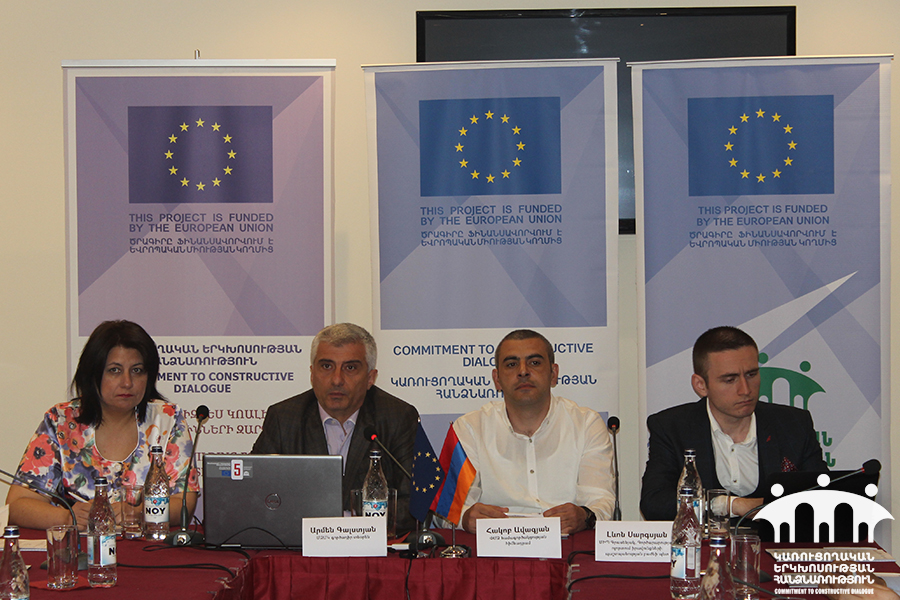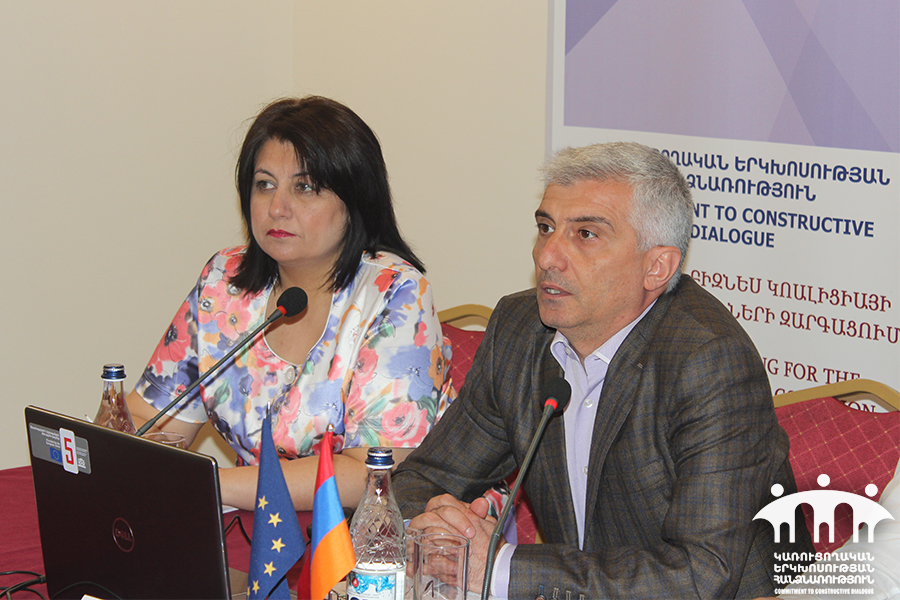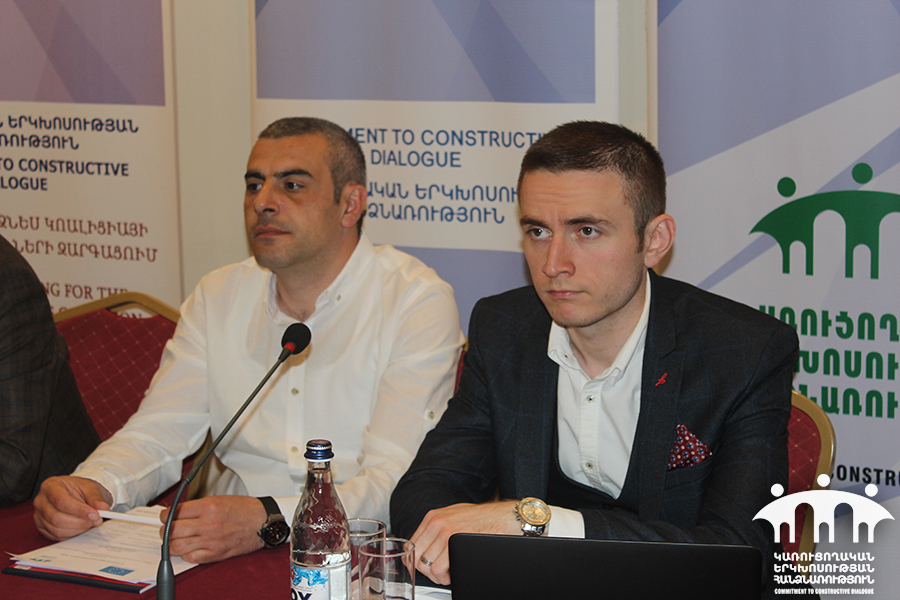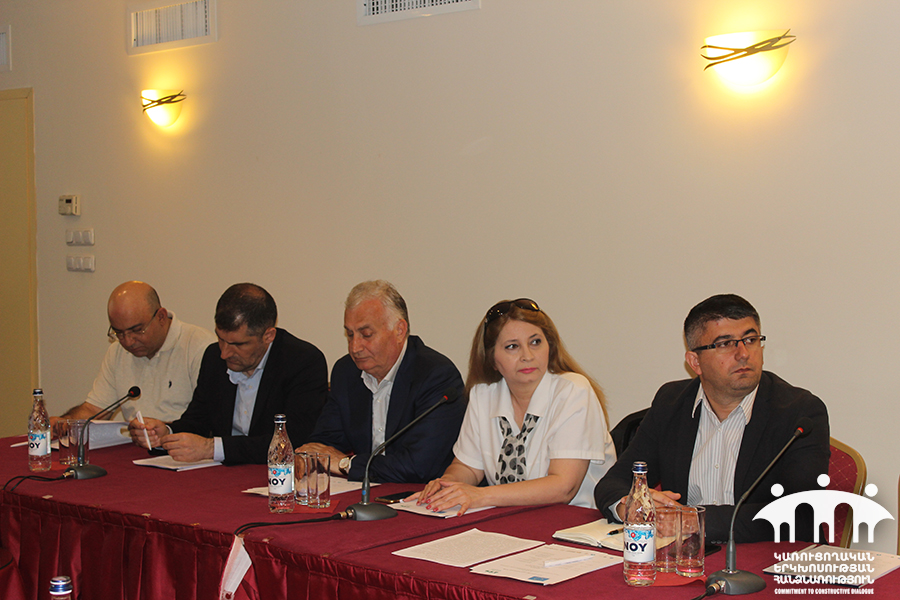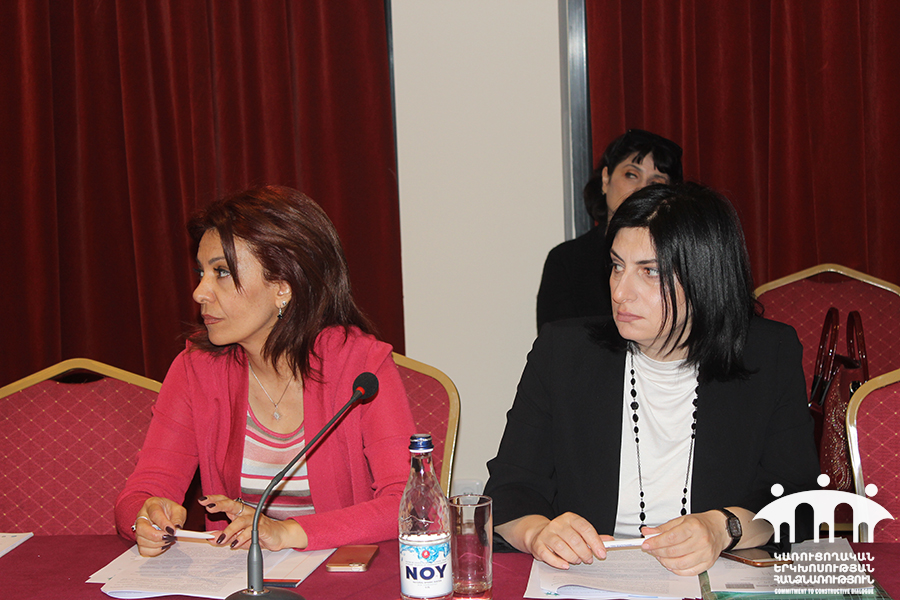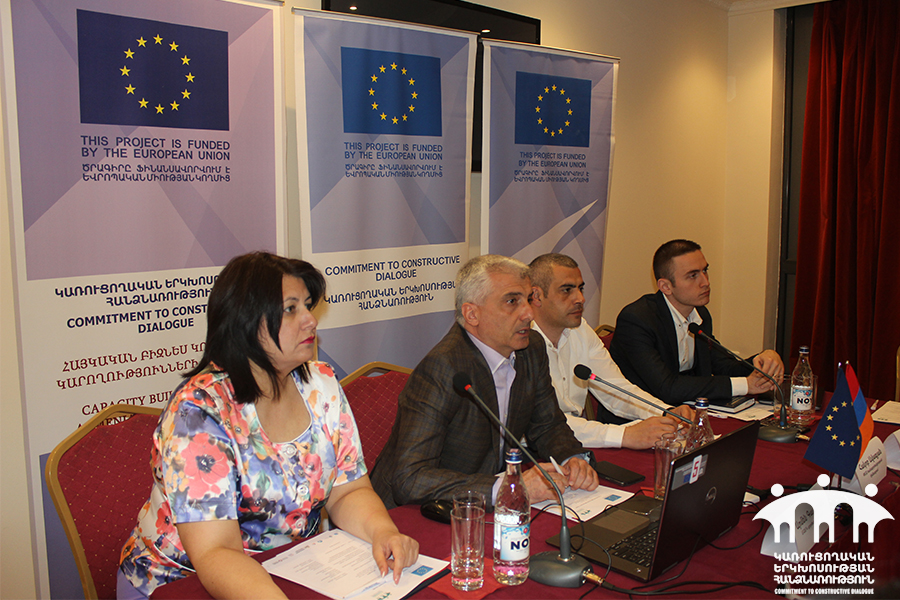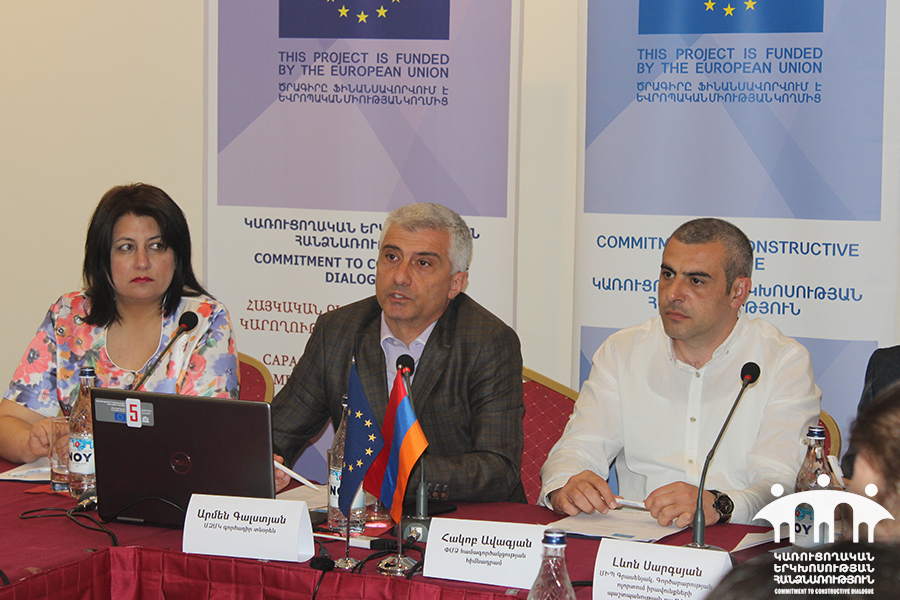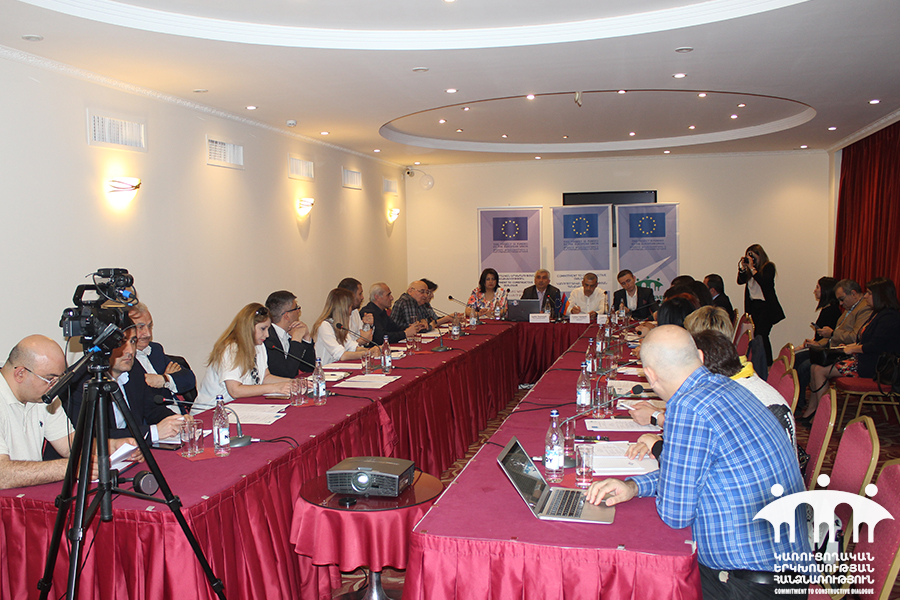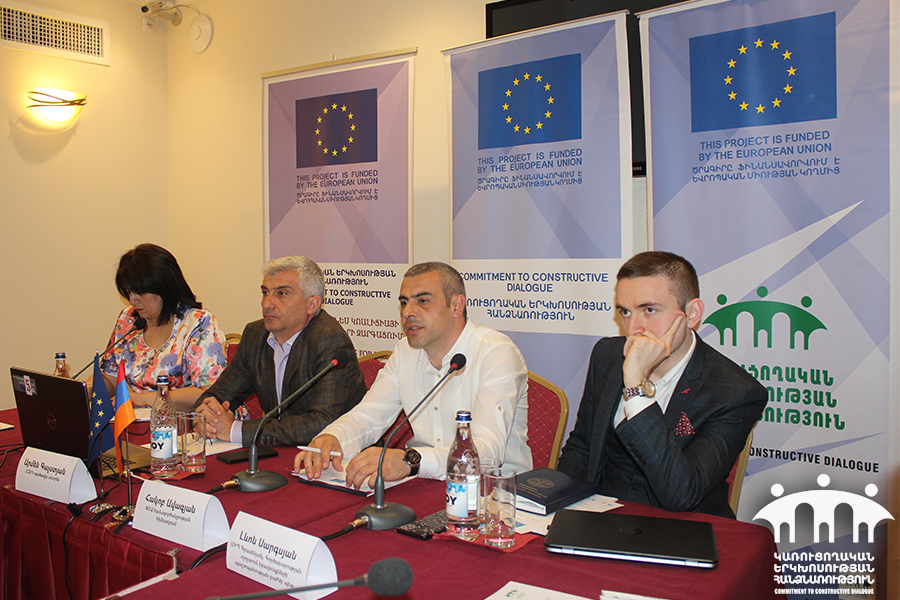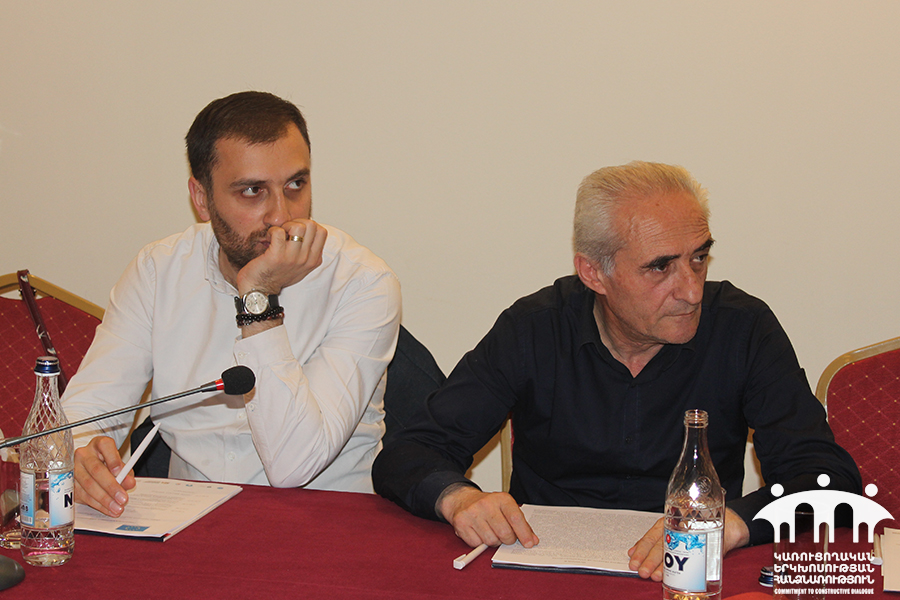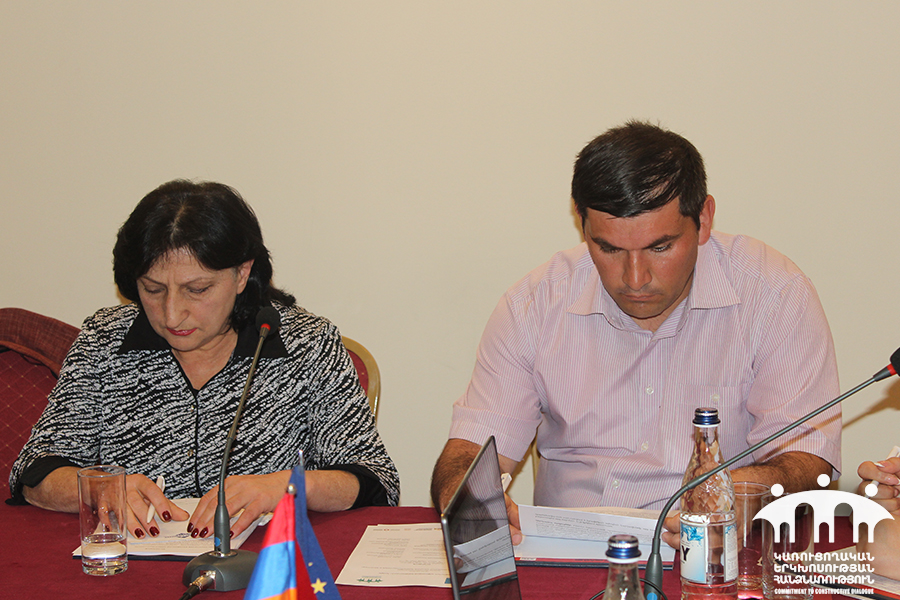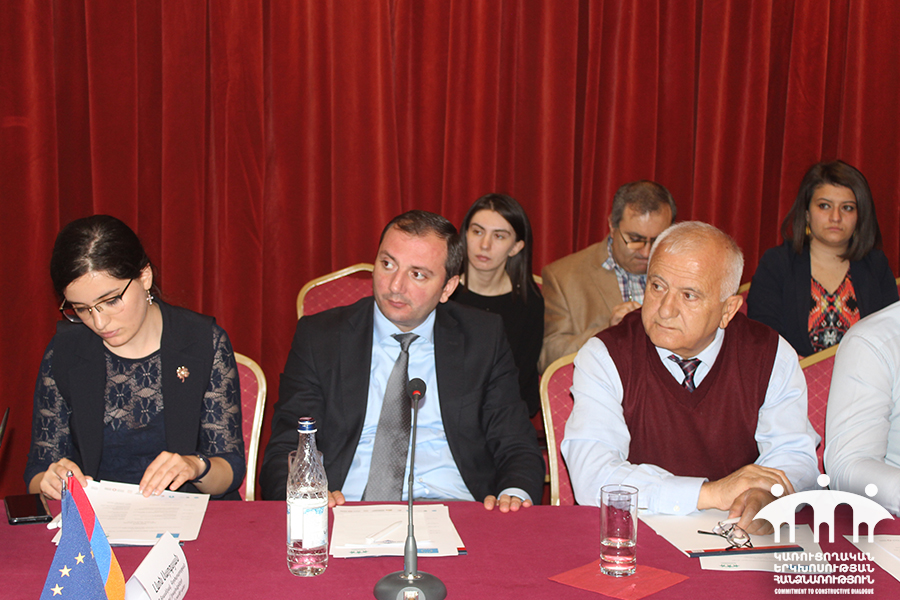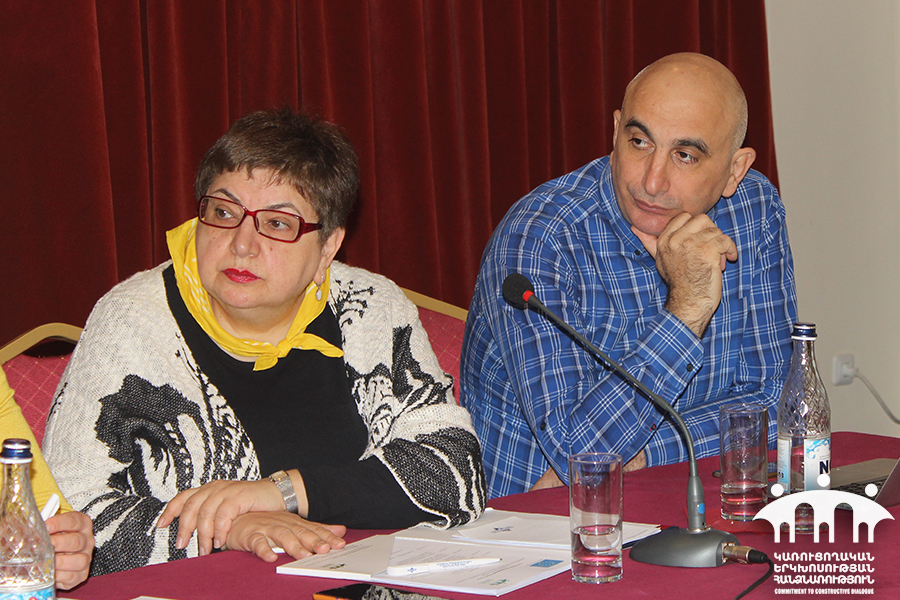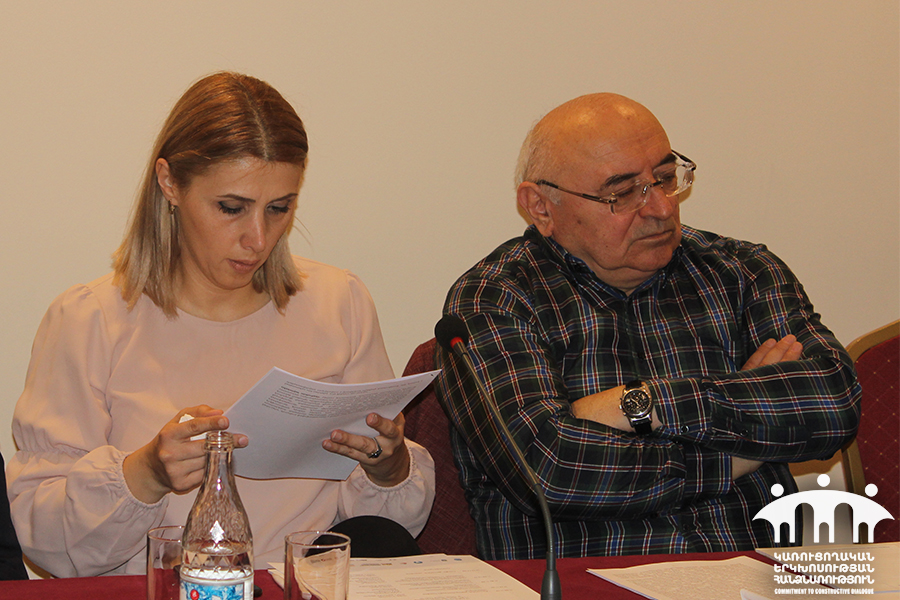On 14 May, a Chatham House format discussion on “Opportunities and Problems of introducing the Business Ombudsman Institute in the Core of the NGO Sector Discussion” was held within the framework of the “New Strategy for Effective development of SME Sector in Armenia” sub-grant project implemented in the scope of the EU-funded “Commitment to Constructive Dialogue” Project.
Mr. Armen Galstyan, Executive Director of the International Center for Human Development, in his welcoming speech, introduced the project and its objectives. He noted that the meeting is held without the right of reference format.
Mr. Hakob Avagyan, Vice-President of SME Cooperation Foundation presented the background of the introduction of the Business Ombudsman Institute in Armenia, its necessity and capabilities. He also pointed out the problems in the sector. Hakob Avagyan also presented the international experience, introducing examples of Georgia, Ukraine and Russia.
The Head of Business and Human Rights Unit of Human Rights Defender’s Office of the Republic of Armenia delivered a speech as well. He, introduced the issues and restrictions of legal regulation related to the implementation of the Business Ombudsman Institute.
Ms Satik Badeyan, President of the Association of Social Enterprises of Armenia, presented the activity of Gyumri and Gavar pilot offices and the online survey data related to the Business Ombudsman Office, conducted among the SME representatives in May.
The participants of the discussion presented a number of controversial arguments. There was an opinion that the Business Ombudsman should be an independent, professional body that should have influence. It was also pointed out that the Business Ombudsman is especially important for small and medium-sized businesses.
Examples of small or medium-sized businesses that have stopped operation because of not being able to resolve their problems independently, which resulting in accumulated loans only.
The example of the introduction and establishment of the Business Ombudsman Institute was also introduced.
At the end of the discussion, it was concluded that there is a need to introduce the Business Ombudsman Institute, and the draft related to it should be reviewed once again in cooperation with the Ombudsman to avoid the duplication of functions and also it is necessary to understand how to move it forward.

